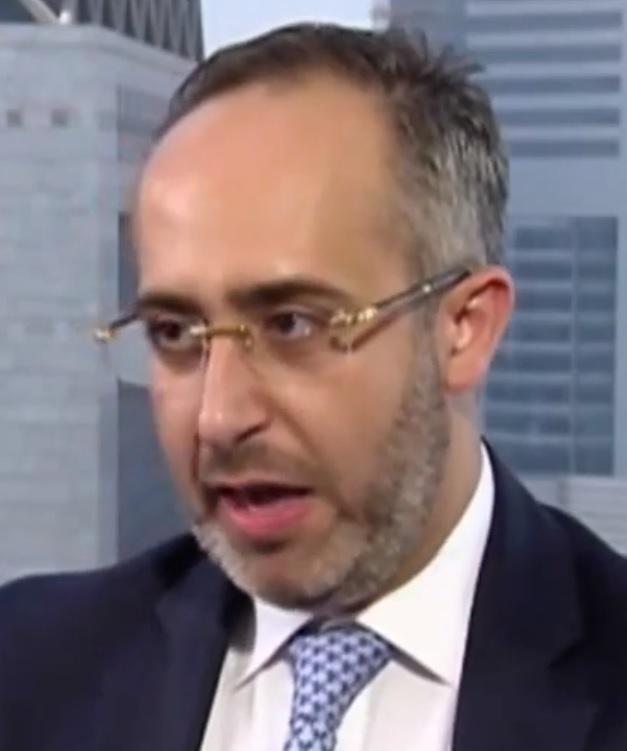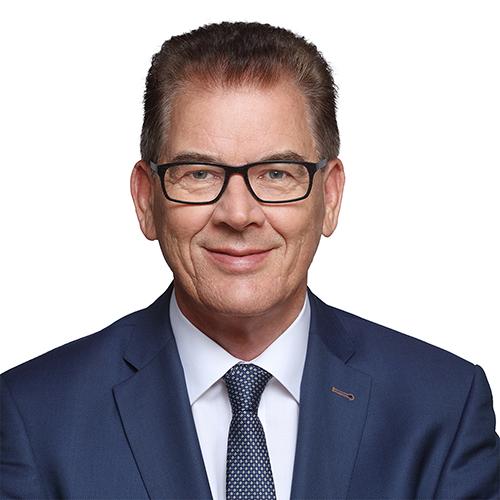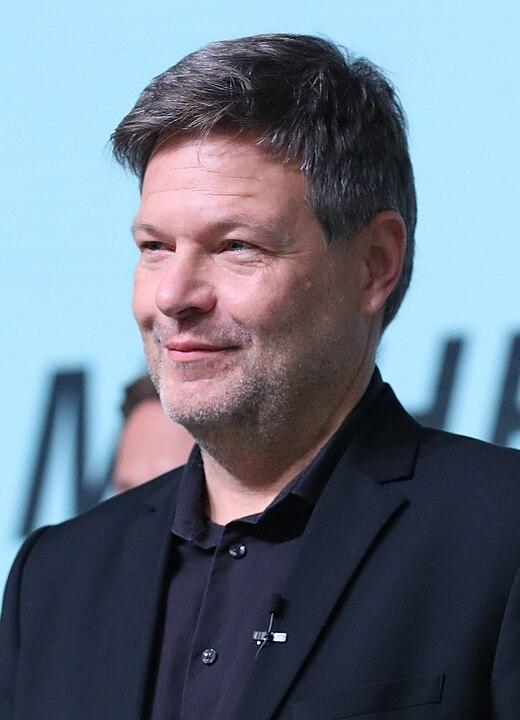German citizens have good reason to wonder if their leaders are working effectively to protect the Federal Republic from Qatari influence operations. Officials acknowledge numerous media reports about Qatari support for Islamist institutions in their country but provide few details about their efforts to confront the problem. One official told Focus on Western Islamism (FWI) that Qatari donations are not really a problem and denied, despite ample evidence to the contrary, that Qatari money is given to promote an Islamist agenda in the country.

It’s an alarming situation, warns Ghanem Nuseibeh, a leading expert on Qatar’s regime and the founder of the London-based Cornerstone Global Associates.
“Qatar continues to undermine free speech and criticism in countries where it operates, including Germany,” he told FWI. “It uses its sovereign investments to gain influence and has been involved in illegally bribing politicians in Europe. It continues to have links to the Muslim Brotherhood, a dangerous underground organization that supports terrorism.”
Clearly, Qatar, whose embassies in the United States and Germany did not respond to FWI queries, has been a malign influence on world affairs and Germany itself. In 2014, the Foundation for the Defense of Democracies reported that U.S. officials described the country “as the region’s biggest source of private donations to radical groups in Syria and Iraq.” Qatar has also been credibly accused of backing Hezbollah operations in Lebanon.
It is also well established that Qatar shamelessly bribed FIFA officials to bring the 2022 World Cup soccer tournament to Doha. In reference to Germany, numerous reports summarized by FWI indicate that Qatar promotes “Islamic separatism in Germany under the cover of charity work” and, as a result, undermines “the ability of Germany to assimilate Muslim immigrants into its society.” In particular, two Doha-run charities — Qatar Charity and Eid Charity — have provided substantial support to institutions in Germany with ties to the Muslim Brotherhood.

Despite all this, German officials are reluctant to speak ill of Qatar. Gerd Müller, who served as Germany’s development minister under Chancellor Angela Merkel, learned it was best not to note Qatar’s misdeeds in 2014. Soon after he accused Qatar of funding the Islamic State declaring that when it came to funding ISIS, the “keyword … is Qatar,” the German government went into a state of panic, prompting damage control and a swift apology from the country’s Foreign Ministry. “If there were misunderstandings, we regret these,” Foreign Ministry spokesman Martin Schäfer said.
Similar deference to Qatar was shown by Vice Chancellor Robert Habeck when he made a “deep bow” to Qatar’s trade minister in 2022 during a trip to secure new gas supplies for Berlin. Habeck’s bow highlights why German officials are so reluctant to confront Qatar — it needs access to the country’s natural gas to run its economy. And while German exports to Qatar have declined in recent years, the country remains an important source of investment capital for the Federal Republic. According to Politico, “The emirate had spent much of the past decade cultivating Germany as a strategic partner, investing some €25 billion in the country, one of the Gulf state’s biggest bets anywhere in the world.”

All this helps explain why Germany’s Bundestag, in sharp contrast to the U.S. Congress, has made little if any effort to address Qatar’s influence operations in the country. It also helps explain why Germany’s institutions are, for the most part, diffident or non-responsive to queries from FWI about the Qatari funding of Muslim Brotherhood mosques in the Federal Republic.
At the federal level, a spokesperson for Germany’s Ministry of the Interior and Community acknowledged the threat by Islamist terrorism to Germany is a problem and declared that it pays close attention to foreign funding of mosques in Germany. The ministry did not describe, however, any specific actions it is taking to counter Qatari influence operations in the country.
Things don’t seem much better at the Federal Office for the Protection of the Constitution (BfV), where a spokesperson told FWI that it cannot comment on any of its surveillance operations without having a “a lasting impact” on its operations. The spokesperson added, “After weighing the matter carefully, it is concluded that a reply to the above-mentioned question cannot be given. It cannot be concluded from this that the organisation is or is not being monitored. Please understand that we also do not comment on external reports.”
A similar diffidence is present in numerous German states. A spokesperson for the intelligence agency (LfV) in the southwestern German state of Baden-Württemberg (BW) told FWI that it knows about Qatar funding of local mosques, but “These donations are initially unproblematic. The situation is different when the funds are associated with ideological influence. However, it is usually very difficult to prove this. The LfV cannot make any statement on the specific financing of mosque associations in BW through the ‘Qatar Charity.’”
When asked about series of Middle East Media Research Institute (MEMRI) reports from August detailing Qatar’s financing and enabling of terrorism, the intelligence spokesperson said “The LfV regularly acknowledges MEMRI’s contributions. They are one of many sources that the LfV uses for its work.” The agency however, provided no information about what its work actually entails.
A spokesperson for the Bavarian State Ministry of the Interior told FWI that despite numerous media reports about the issue, officials have no knowledge of “specific financial support from Qatar for mosques and mosque associations in Bavaria.” The same official added that “There are only isolated cases of monetary donations from abroad, although there is generally no evidence of an extremist motivation for the monetary donation.”
This contradicts evidence provided by Deutschlandfunk Kultur which in October 2022, reported that a preacher in the Islamic Center Munich eulogized Qatar-based jihadi cleric Yusuf al-Qaradawi, declaring a in a YouTube video: “From our great scholar Yusuf al-Qaradawi, I have often quoted him in sermons and in lectures.” Just to drive the point home, Deutschlandfunk Kultur titled its program “Qatar’s influence extends to Bavaria.”
Similarly, Dirk Polke, a spokesman for the interior ministry in Hamburg, where a mosque association has received Qatari funds, told FWI that the “State Office for the Protection of the Constitution Hamburg has no information about your questions.”
A spokesperson for Berlin’s Senate Department for the Interior and Sport told FWI that under questioning from the city’s lawmakers, the agency declared it “had no knowledge of the organization ’Qatar Charity‘ providing financial support” to institutions in the city. As FWI noted, Qatar’s money has provided dramatic shots in the arms to two Berlin mosques: the Intercultural Center for Dialogue and Education (Interkulturelle Zentrum für Dialog und Bildung, IZDB), and the Neuköllner Meeting Center (Neuköllner Begegnungsstätte, NBS), which is also known as the Dar-as-Salam Moschee.
The intelligence agency for North Rhine-Westphalia (NRW), where news reports indicate that Qatar has funded numerous Muslim organizations, declined to answer FWI press queries.
While security officials for the state of Hessen did not respond to an FWI query, a report issued in early August did provide a tiny reference to Qatar’s support for Islamism in Germany, highlighting an obituary for Yusef Qaradawi published by the Deutsche Muslimische Gemeinschaft (German Muslim Community or DMD) which described the ideologue Yusuf al-Qaradawi in glowing terms, declaring him to be “one of the most competent and prominent scholars in the Muslim world.”
Qatar’s links to the Muslim Brotherhood include financing its activities and mosques, often used to preach extremism.
Ghanem Nuseibeh
Germany needs to up its game when dealing with Qatar influence operations, warned Nuseibeh. “Qatar’s links to the Muslim Brotherhood include financing its activities and mosques, often used to preach extremism,” he said. “German security needs to be alert to the dangers that the Muslim Brotherhood poses to German security and the role that Qatar plays in promoting and supporting the Muslim Brotherhood.”
Benjamin Weinthal is a writing fellow at the Middle East Forum.
